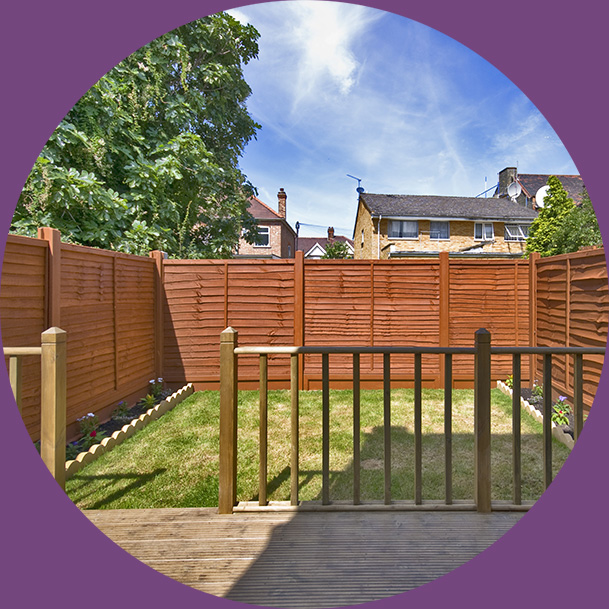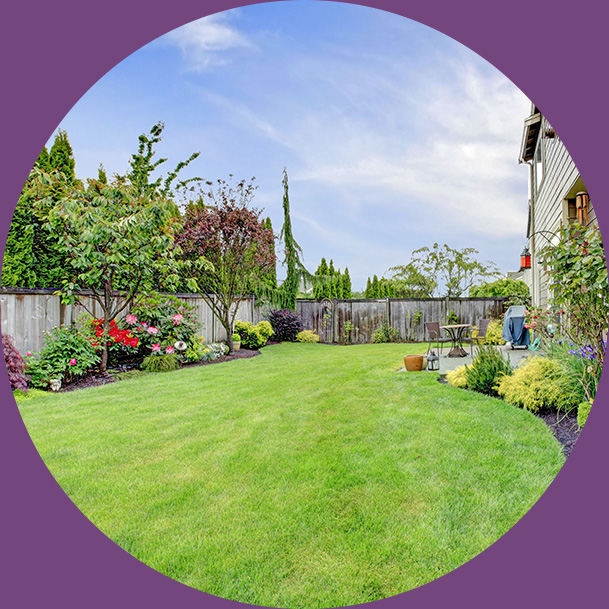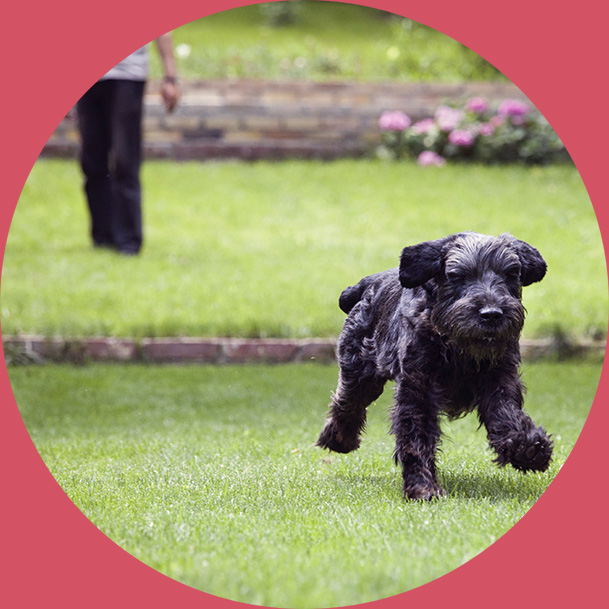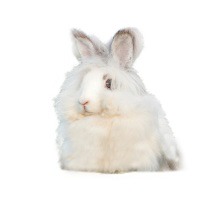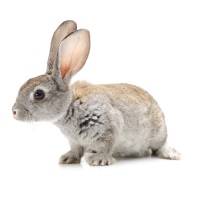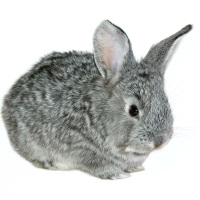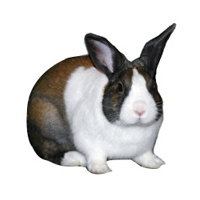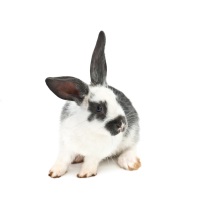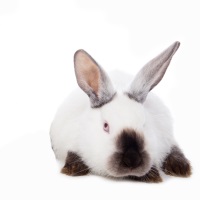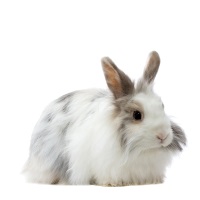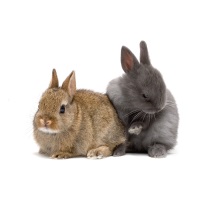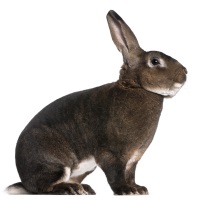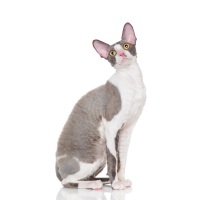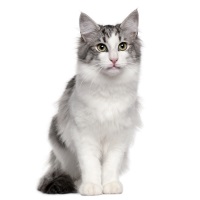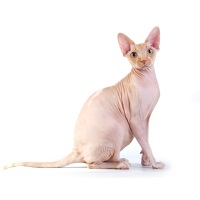Get PetWise
Getting a pet is a very exciting time, but providing everything for a new animal can end up being overwhelming. We can help you choose the right pet for you, and understand the needs of the pet you're thinking about getting. Think P-E-T-S – Place, Exercise, Time and Spend… with bonus points for additional knowledge, and get started by answering some simple questions below!
What size garden do you have?
All pets need space to run and play, but dogs in particular need regular access to a safe and secure outdoor space. Many cats also enjoy being able to exercise outside and rabbits and guinea pigs need access to a large run or a garden to be happy and healthy.
I don't have a secure garden
I have a small or medium size, secure garden
I have a big, secure garden
How active are you?
Dogs enjoy regular walks, and playing off the lead whenever it's safe for them to do so. The amount of exercise a dog will need depends on their age, breed and health. All pets enjoy fun games and playing with toys to keep them active, but for smaller pets you can easily do this in your house.
I'm not very active and don't really spend much time outdoors
I spend lots of time outdoors and would enjoy playing with a pet but I prefer shorter walks
I love long walks all year round and I'm not put off by bad weather and muddy paws!
How much time do you have to spend with your pet?
Pets are generally sociable and dogs especially love your company. It's really important that they aren't left alone for longer than four hours, as dogs can become lonely, anxious and distressed. Walks, training, play time, feeding, cleaning their home and equipment (or cleaning up after your pet!) grooming and visits to the vet can start to add up and might take more time than you think.
I'm busy with little free time and I'm out of the house for more than 4 hours most days
I'm out of the house for most of the day but I have quite a lot of free time once I'm home
I have lots of free time to devote to my new pet
How much money could you spend on your new pet?
It's not just the initial cost of getting a pet which you need to consider. Food, equipment, toys, flea and worm treatments, pet insurance premiums, replacing a chewed-up bed or unexpected vets bills – it all adds up significantly over the lifetime of your pet, especially as they get older or if they develop health problems.
I can afford £20-£80 every month - £1,000 plus a year
I can afford £80-£125 every month - £1,500 plus a year
I can afford £125 or more every month - £2,000 plus a year
How much do you know about the pet that you want?
We're a nation of animal lovers, but the reality of owning a pet can be different from what we expect. Researching as much as you can about the species and breed of pet you want is really important, and real-life experiences of people who already own that pet and advice from a vet are essential. Make sure you know about The Animal Welfare Acts* and the five welfare needs that each pet needs to be healthy and happy.
*The Animal Welfare Acts mean that all pet owners have a duty of care to meet the welfare needs of their pets and ensure their pets are both physically and mentally healthy and happy. The five welfare needs are;
- • Environment – give them a safe, suitable place to live
- • Diet – feed them the right type and amount of food
- • Behaviour – allow them to show normal behaviour patterns
- • Companionship – some pets like to live alone whilst others need the company of other pets
- • Health – keep your pets in good health and seek vet advice if they’re ill or injured
I don't know much about the pet I want and have never had a pet before
I've never owned the pet I'd like before but I've done lots of research
I've done lots of research and have owned, or already own the pet I'd like to get
The Right Pet in the Right Home
Below are pets that may be compatible with you.
From your answers, you would find it easiest to meet the welfare needs of pets circled in green. Click on each pet to find out more about different breeds.
If a pet is circled in amber, click to learn more about what changes you may need to make before offering them a home, so that you can provide them with a happy and healthy life which meets their five welfare needs. Click on each pet to find more about different breeds.
Every home and situation is different, and we know that owners go to great lengths to ensure that their pets are healthy and happy. This is a guide to help potential pet owners make an informed choice about whether to offer a forever home to an animal, fully aware of the costs and responsibilities involved!

Fish
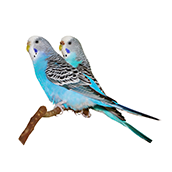
Indoor Birds

Small Pets

Guinea Pigs
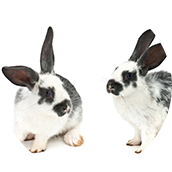
Rabbits

Cats
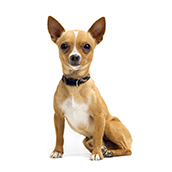
Small Dogs

Medium Dogs

Large Dogs
Fish
Fish are a great pet if you're worried you might not have lots of time, space or money to own a larger pet, but remember, owning a fish is still a big commitment -the average fish will live for around 10 years… but can live up to 40 years! Although the initial start up costs can be up to £1,000 to ensure your fish have everything they need, ongoing maintenance costs are generally quite low.
Over its average lifetime, one goldfish could cost around £2,000.
Different fish have different requirements, so contact a vet or an aquatic specialist to find out everything you'll need to know about keeping your chosen breed of fish before you buy anything. All fish need a tank of water big enough for them to swim around easily and avoid other fish in the tank, and should be in a quiet place; have you got space for this in your home?
Although you'll need to do cleaning and maintenance of the tank at least every week, fish don't need you to exercise them, or keep them company, so if you're quite busy and not always around then fish could be a good choice for you.
Indoor Birds
Different birds have different requirements, but all will need an indoor aviary big enough for them to fly across, so you will need a large area to dedicate to your birds. Some species can live up to 60 years so it's important you get as much advice as you can by speaking to your vet or an avian specialist and find out everything you'll need to know about your chosen species.
The initial costs are generally around £500 and monthly maintenance costs can be around £60, although this doesn't include vets bills so if your bird is sick or injured it could be a lot more, so many people take out pet insurance to cover some of this.
You should check if your chosen species of bird likes the companionship of another bird. Budgies for example, are very social and enjoy being kept with another budgie of the same sex but having two birds will increase the monthly costs, so your bird's need for company will need to be calculated for.
Birds are generally quite friendly and enjoy some gentle interaction with trusted people, such as playing games with toys. Birds can become easily bored and frustrated if they don't have enough contact with humans, so you need to think if you have time every day to dedicate to your bird. Birds need to exercise by flying in their aviary or around your home in a secure area, so even if you're not that active a bird may suit your lifestyle.
Small Pets
Small pets such as hamsters, rats, mice, gerbils and chinchillas generally live in a cage inside your home. Each one needs different care if you keep them as pets, so speak to your vet or a small pet specialist to find out everything you need to know about your chosen pet before you take one home.
Some smaller pets like chinchillas can live up to 22 years, whereas the average life span of a hamster is around 2 years. This is reflected in the expected lifetime costs of owning small pets, with a pet like a chinchilla likely to cost around £5,000, whereas a hamster is likely to cost you around £1,000 throughout its life.
The cages you need to keep small pets happy and healthy might be bigger than you think - chinchillas need a cage that is at least 2 metres square, so you could need a large area to dedicate to your small pet. Most small pets are very sociable and need to live in groups or pairs so this might increase the space they need, how much it costs you to keep them and how much time you need to dedicate to them. Some small pets are nocturnal, and will be active and sometimes noisy at night. It's worth checking if this applies to the pet you'd like to get, if you're planning to keep them anywhere near to where people sleep!
Small pets are generally friendly and can enjoy lots of interaction with us, if gently handled from a young age. They're active animals, and enjoy playing games playing with toys, but as this can generally be done in a secure area of your home, even if you're not that active, you'll be able to keep a small pet happy and healthy. You will need time to play with your small pet every day and will need to regularly clean out their living environment.
Find out more about the different small pets and their needs here
Guinea Pigs
Guinea pigs need to be kept in a large, outdoor hutch with free access to a large run, so you need a garden big enough to accommodate a hutch that's at least 6 feet long, 2 feet wide and 2 feet high with the run beside it.
Guinea pigs need the company of another guinea pig as they are very sociable. It will cost you around £400 to buy your guinea pigs, along with everything they need to be happy and healthy. Guinea pigs can live to be 8 years old but their average lifespan is around 4 years. Throughout their lifetime your guinea pigs could cost you up to £7,000 - around £70 a month, but this doesn't include vets bills so if your guinea pig is sick or injured it could be a lot more, so many people take out pet insurance to help cover for this.
Guinea pigs are generally very friendly and enjoy lots of interaction with us. They also enjoy keeping active by playing games with toys. As this can generally be done in a secure area of your home or garden, even if you're not that active, you should be able to keep a guinea pig happy and healthy. You will need to spend time with your guinea pig every day and regularly clean out their living environment.
Guinea pigs have very specific dietary requirements so try to do lots of research including speaking to a vet before you decide they are the pet for you.
Rabbits
Rabbits need to be kept in a large, outdoor hutch with a large run which they can access when they want to throughout the day.
You need a garden big enough to accommodate a hutch that's at least 6 feet long, 2 feet wide and 2 feet high and a run that is at least 8 feet long, 4 feet wide and 2 feet high.
Rabbits need the company of other rabbits, as they become lonely and stressed if kept on their own. A pair of rabbits will live an average of 9 years and you can expect a pair of rabbits to cost you around £10,000 each throughout their lifetime. This is around £90 a month but this doesn't include vets bills, so if your rabbit is sick or injured it could be a lot more. Many people take out pet insurance to cover for this.
Rabbits are generally very friendly and enjoy lots of interaction with us. They also enjoy keeping active by playing games, burrowing and playing with toys. As this can generally be done in a secure area of your home or garden, even if you're not that active, you should be able to keep a pair of rabbits happy and healthy. You will need to regularly clean out their living environment and spend lots of time with them every day, including taking time to groom them if they are longhaired.
Rabbits have very specific dietary requirements so try to do lots of research including speaking to a vet so you are well prepared.
Find out more about rabbits and their needs here
Click on your desired breed of pet below to find out more:
Cats
Many cats are quite solitary creatures and prefer their own company to living with other pets. Although cats are generally happy to be left alone for longer periods of time, you still need to feed and check your cat at least once a day. Some cats are very social and enjoy spending lots of time every day with us and yet some cats don't ever require companionship with humans. This can depend on their experiences as a kitten.
Cats need to be able to exercise every day. This can be outside in your garden but if this is not safely possible, cats can live inside. However, if you choose to have an indoor cat, think about how you can interact with them and what you can provide to make sure they can still play, chase, run, climb and scratch – all natural behaviours for a cat. Every cat needs their own bed or safe area where they can hide, food and water bowls and at least one litter tray per cat so you need to make sure you've got space around the house for these. You'll also need to keep a close eye on their weight, and be prepared to clean out those litter trays at least twice a day!
Cats usually live to be between 12 and 15 years old but some cats can live much longer. Your cat may cost you up to £17,000 throughout their life – around £120 a month. This doesn't include vets bills so if your cat is sick or injured it will cost you more and many people choose to have pet insurance to help prepare for these unexpected costs. You’ll need to make sure you provide routine veterinary treatments such as vaccinations, neutering, microchipping and regular flea and worming products. It's a big commitment to take on a cat and you need to make sure you speak to your vet, and maybe someone who already owns a cat to find out what it's really like to own one.
Find out more about cats, cat breeds and cat care here
Click on your desired breed of pet below to find out more:
Small Dogs
Dogs are very sociable and enjoy spending lots of time with us. Dogs don't enjoy being left alone for long periods of time and it's not recommended to leave them alone for more than 4 hours. In your house, dogs need quite a large space as they need a private and safe area to sleep along with their food and water bowls.
Your garden needs to be secure and big enough for your dog to explore and go to the toilet. No matter how big your garden is, dogs need daily walks outside of your home and garden. Walks are not just for the physical benefits but for mental stimulation too. Whilst you should check with your vet your individual dogs exercise requirements, as a general rule smaller dogs like Yorkshire Terriers need between 20 and 60 minutes of exercise every day, no matter the weather!
Smaller dogs generally live for longer than larger breeds and can live up to 15 years old. Toy and smaller dog breeds are likely to cost around £20,000 throughout their life time – around £120 per month.
This doesn't include vets bills, so if your dog is sick or injured it will cost you more and many people choose to have pet insurance to help prepare for these unexpected costs. You’ll need to make sure you provide routine veterinary treatments such as vaccinations, neutering, microchipping and regular flea and worming products. It's a big commitment to take on a dog, and you need to make sure you speak to your vet, and maybe someone who already owns a dog to find out what it's really like to own one.
Different breeds of dog have very different personalities and requirements so doing lots of research and finding the right dog for you and your lifestyle is key. There's lots of information about dogs including dog breeds and where you can get a dog from on our DOGS web pages.
Find out more about dogs, dog breeds and dog care here
Click on your desired breed of pet below to find out more:

Bichon Frise

Border Terrier

Boston Terrier

Cairn Terrier

Cavalier King Charles Spaniel

Chihuahua

Coton De Tulear

French Bulldog

German Spitz

Havanese
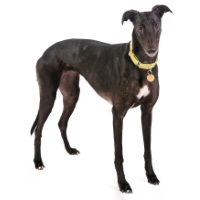
Italian Greyhound

Jack Russell Terrier

Lhasa Apso

Maltese

Miniature Pinscher

Miniature Schnauzer

Norfolk Terrier

Papillon

Parson Russell Terrier

Pekingese

Pomeranian

Pug

Shih Tzu

Tibetan Spaniel

West Highland White Terrier

Yorkshire Terrier
Medium Dogs
Dogs are very sociable and enjoy spending lots of time with us. Dogs don't enjoy being left alone for long periods of time and can become destructive if they are panicking, anxious or bored – we'd suggest that they aren't left alone for longer than four hours.
A dog will take up quite a bit of room in your house, as they need a quiet, comfortable and safe area to sleep, as well as somewhere for their food and water bowls, equipment, toys... and muddy towels!
Your garden needs to be secure and big enough for your dog to explore and go to the toilet. No matter how big your garden is, dogs need daily walks outside of your home and garden. Walks are not just for the physical benefits but for mental stimulation too. Whilst you should check with your vet your individual dog's exercise requirements,medium dogs need around 1-2 hours of exercise every day, no matter the weather!
Medium breed dogs tend to have shorter life spans than smaller dogs and generally live around 12 years. Medium breeds can cost you around £25,000 throughout their lifetime – which could add up to over £200 a month.
This doesn't include vets bills, so if your dog is sick or injured it will cost you more and many people choose to have pet insurance to help prepare for these unexpected costs. You’ll need to make sure you provide routine veterinary treatments such as vaccinations, neutering, microchipping and regular flea and worming products. It's a big commitment to take on a dog, and you need to make sure you speak to your vet, and maybe someone who already owns a dog to find out what it's really like to own one.
Different breeds of dog have very different personalities and requirements so doing lots of research, finding the right dog for you, from a reputable source, is key.
There's lots of information about dogs, including dog breeds and where you can get a dog from on the dog pages of our website.
Find out more about dogs, dog breeds and dog care here
Click on your desired breed of pet below to find out more:
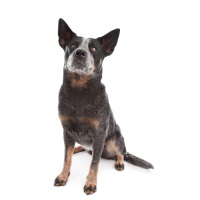
Australian Cattle Dog
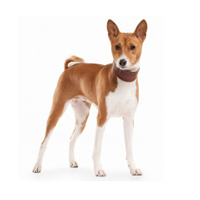
Basenji

Beagle

Bedlington Terrier

Border Collie

Bulldog

Chow Chow

Cocker Spaniel

Dachshund

Dandie Dinmont Terrier
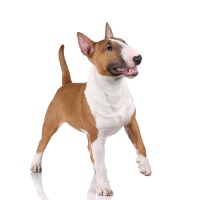
English Bull Terrier

English Springer Spaniel

Fox Terrier

Irish Terrier

Japanese Spitz

Keeshond
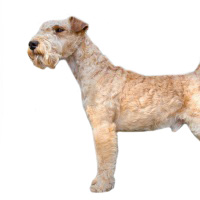
Lakeland Terrier

Manchester Terrier

Schnauzer

Scottish Terrier

Shar Pei

Shetland Sheepdog

Soft-Coated Wheaten Terrier

Spanish Water Dog

Staffordshire Bull Terrier

Tibetan Terrier

Welsh Corgi

Welsh Terrier

Whippet
Large Dogs
Dogs are very sociable and enjoy spending lots of time with us. Dogs don't enjoy being left alone for long periods of time and can become destructive if they are panicking, anxious or bored – we'd suggest that they aren't left alone for longer than four hours.
A dog will take up quite a bit of room in your house, as they need a quiet, comfortable and safe area to sleep, as well as somewhere for their food and water bowls, equipment, toys... and muddy towels!
Your garden needs to be secure and big enough for your dog to explore and go to the toilet. No matter how big your garden is, dogs need daily walks outside of your home and garden. Walks are not just for the physical benefits but for mental stimulation too. Whilst you should check with your vet your individual dog's exercise requirements, larger dogs such as Labrador Retrievers need over 2 hours of exercise every day, no matter the weather!
Larger breed dogs tend to have shorter life spans than smaller dogs and generally live around 9 years. Larger dogs can cost you around £30,000 throughout their lifetime – which could add up to over £250 a month.
This doesn't include vets bills, so if your dog is sick or injured it will cost you more and many people choose to have pet insurance to help prepare for these unexpected costs. You’ll need to make sure you provide routine veterinary treatments such as vaccinations, neutering, microchipping and regular flea and worming products. It's a big commitment to take on a dog, and you need to make sure you speak to your vet, and maybe someone who already owns a dog to find out what it's really like to own one.
Different breeds of dog have very different personalities and requirements so doing lots of research, finding the right dog for you, from a reputable source, is key.
There's lots of information about dogs, including dog breeds and where you can get a dog from on the dog pages of our website.
Find out more about dogs, dog breeds and dog care here
Click on your desired breed of pet below to find out more:

Afghan Hound

Akita

Alaskan Malamute

Australian Shepherd

Basset Hound

Bearded Collie

Bernese Mountain Dog

Bloodhound

Borzoi

Boxer

Bullmastiff

Dalmatian
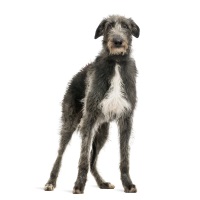
Deerhound

Dobermann

Dogue De Bordeaux

English Setter

Foxhound

German Pointer

German Shepherd

Giant-Schnauzer

Golden Retriever

Gordon Setter

Great Dane

Greyhound

Hungarian Vizsla

Irish Setter

Irish Wolfhound

Italian Spinone

Komondor

Labrador Retriever

Leonberger

Mastiff

Neapolitan Mastiff

Newfoundland

Old English Sheepdog

Pointer

Poodle

Portugese Water Dog

Pyrenean Mountain Dog
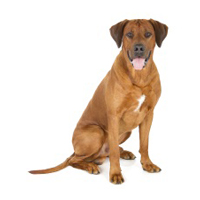
Rhodesian Ridgeback

Rottweiler

Saint Bernard

Saluki

Samoyed

Siberian Husky

Tibetan Mastiff

weimaraner
Dogs – A dog isn't the most compatible match for you.
This might be because you don't have a secure garden. Whilst having a garden is recommended, if you live close to a park and are willing to walk your dog to the park every time they need to go to the toilet you could still think about a dog – it would depend on your lifestyle and the age and breed of dog. It might be that you're planning to move to a house with a garden in the future, if so, perhaps waiting till you do is going to be best for your future canine companion?
It might be because you answered that you aren't very active. It's important that dogs are walked twice every day to keep them happy and healthy – can you commit to this? If not, perhaps you have a family member or friend who would love to help out with some of the walks or you could look into paying a dog walker every day. However, dogs can live for over 15 years - two walks a day means nearly 11,000 walks over his lifetime, so if walking isn't for you, perhaps another pet would be a better match for you?
It might be because you're busy and don't have much time to dedicate to a pet. Dogs need lots of companionship, as well as daily walks and play time. About four hours is longest you should leave a dog alone, so unless you plan on changing your lifestyle, maybe consider a different pet? A dog really doesn't make a good match for someone with a hectic schedule!
It might be because you’ve indicated that the £120 - £250 a month that having a dog is likely to cost would be too much to spend. This figure might sound high, but dogs need a lot of care, particularly as they get older. Owners need to make sure they can afford everything their dog will need to stay happy and healthy throughout their life, which can be over 15 years! If you can't make this financial commitment, it might be that a different pet is more suited to you.
It might be because you feel you need to find out more about keeping a dog. You can learn a lot about dogs by researching how to keep them healthy and happy from reliable sources and your vet will be able to give you lots of advice and help. It might be good to speak someone you know who owns a dog, and, if you are considering a specific breed of dog, try to speak to someone who owns one as they'll be able to give you a realistic picture of what it's like to care for that animal.
Dogs – A dog isn't the most compatible match for you.
This might be because you don't have a secure garden. Whilst having a garden is recommended, if you live close to a park and are willing to walk your dog to the park every time they need to go to the toilet you could still think about a dog – it would depend on your lifestyle and the age and breed of dog. It might be that you're planning to move to a house with a garden in the future, if so, perhaps waiting till you do is going to be best for your future canine companion?
It might be because you answered that you aren't very active. It's important that dogs are walked twice every day to keep them happy and healthy – can you commit to this? If not, perhaps you have a family member or friend who would love to help out with some of the walks or you could look into paying a dog walker every day. However, dogs can live for over 15 years - two walks a day means nearly 11,000 walks over his lifetime, so if walking isn't for you, perhaps another pet would be a better match for you?
It might be because you're busy and don't have much time to dedicate to a pet. Dogs need lots of companionship, as well as daily walks and play time. About four hours is longest you should leave a dog alone, so unless you plan on changing your lifestyle, maybe consider a different pet? A dog really doesn't make a good match for someone with a hectic schedule!
It might be because you’ve indicated that the £120 - £250 a month that having a dog is likely to cost would be too much to spend. This figure might sound high, but dogs need a lot of care, particularly as they get older. Owners need to make sure they can afford everything their dog will need to stay happy and healthy throughout their life, which can be over 15 years! If you can't make this financial commitment, it might be that a different pet is more suited to you.
It might be because you feel you need to find out more about keeping a dog. You can learn a lot about dogs by researching how to keep them healthy and happy from reliable sources and your vet will be able to give you lots of advice and help. It might be good to speak someone you know who owns a dog, and, if you are considering a specific breed of dog, try to speak to someone who owns one as they'll be able to give you a realistic picture of what it's like to care for that animal.
Dogs – A dog isn't the most compatible match for you.
This might be because you don't have a secure garden. Whilst having a garden is recommended, if you live close to a park and are willing to walk your dog to the park every time they need to go to the toilet you could still think about a dog – it would depend on your lifestyle and the age and breed of dog. It might be that you're planning to move to a house with a garden in the future, if so, perhaps waiting till you do is going to be best for your future canine companion?
It might be because you answered that you aren't very active. It's important that dogs are walked twice every day to keep them happy and healthy – can you commit to this? If not, perhaps you have a family member or friend who would love to help out with some of the walks or you could look into paying a dog walker every day. However, dogs can live for over 15 years - two walks a day means nearly 11,000 walks over his lifetime, so if walking isn't for you, perhaps another pet would be a better match for you?
It might be because you're busy and don't have much time to dedicate to a pet. Dogs need lots of companionship, as well as daily walks and play time. About four hours is longest you should leave a dog alone, so unless you plan on changing your lifestyle, maybe consider a different pet? A dog really doesn't make a good match for someone with a hectic schedule!
It might be because you’ve indicated that the £120 - £250 a month that having a dog is likely to cost would be too much to spend. This figure might sound high, but dogs need a lot of care, particularly as they get older. Owners need to make sure they can afford everything their dog will need to stay happy and healthy throughout their life, which can be over 15 years! If you can't make this financial commitment, it might be that a different pet is more suited to you.
It might be because you feel you need to find out more about keeping a dog. You can learn a lot about dogs by researching how to keep them healthy and happy from reliable sources and your vet will be able to give you lots of advice and help. It might be good to speak someone you know who owns a dog, and, if you are considering a specific breed of dog, try to speak to someone who owns one as they'll be able to give you a realistic picture of what it's like to care for that animal.
Cats – A cat isn't the most compatible match for you.
This might be because your cat wouldn't have access to a safe garden space. However, whilst most cats enjoy exercise outside, if it's not safe for them, cats can live indoors. If you chose to have an indoor cat, think about how you can interact with them and what you can provide to make sure they can still play, chase, run, climb and scratch – all natural behaviours for a cat. You'll also need to keep a close eye on their weight, and be prepared to clean out litter trays at least twice a day!
It might be because you answered that you aren't very active. Cats do need daily interactions with us and will enjoy playing games but you might find a family member or friend might like to pop in regularly to do this with your cat.
It might be because you're busy and don't have much time to dedicate to a cat. Cats do need regular company and play time with their owners, so if you're too busy to commit to this and can't change your lifestyle to give the time you will need to dedicate to a cat, why not think about a different animal?
It might be because you think you cannot afford the £120 + a month that having a cat is likely to cost you. This figure surprises a lot of people, but cats need a lot of care, particularly as they get older. Can you can afford everything they will need to stay happy and healthy throughout their life, which can be over 20 years? If you can't make this financial commitment, it might be that a different pet is a better match for you.
It might be because you feel you need to find out more about keeping a cat. You can learn a lot about cats by researching how to keep them healthy and happy from reliable sources and your vet will be able to give you lots of advice and help. It might also be good to speak to someone you know who owns a cat as they'll be able to tell you exactly what it's like to care for one.
Rabbits - Rabbits aren't the most compatible match for you.
This might be because you don't have a secure garden. Rabbits need access to a large outdoor run to keep them physically and mentally healthy so it's really important that you do have a garden. Are you planning to move to a house with a garden in the future? Waiting till you do this is going to be best for your future pair of rabbits!
It might be because you answered that you aren't very active. Rabbits need daily interactions with us and might enjoy playing gentle games with you. The physical work it takes to regularly clean hutches and runs in all weathers is something to think about too.
It might be because you're busy and don't have much time to dedicate to a pair of rabbits. Although they should have the company of another rabbit, they can also enjoy play time with people most days. If you're too busy to commit to this, and can't change your lifestyle to give the time you will need to dedicate to rabbits, why not think about a different pet?
It might be because you think you cannot afford the £90 + a month that having rabbits is likely to cost you. This figure surprises a lot of people, but rabbits need lots of special care, and you need to make sure that you can afford everything they will need to stay happy and healthy throughout their lives. If you can't make this financial commitment, it might be that a different pet is more suited to you.
It might be because you feel you need to find out more about keeping rabbits. You can learn a lot about rabbits through research, and your vet will be able to give you lots of advice and help. It might be good to speak to someone you know who already has a pair of rabbits so they'll be able to tell you exactly what it's like to care for them.
Guinea Pigs – Guinea pigs aren't the most compatible match for you.
This might be because you indicated that you don't have a secure garden. Guinea pigs need access to a large outdoor run to keep them physically and mentally healthy, so it's best if you do have a garden. Are you planning to move to a house with a garden in the future? Perhaps waiting till you do is going to be best for your future pair of guinea pigs!
It might be because you answered that you aren't very active. Guinea pigs need daily interactions with us and will probably enjoy playing gentle games with you. The physical work it takes to regularly clean hutches and runs in all weathers is something to think about too.
It might be because you're busy and have answered that you don't have much time to dedicate to your pets. Although guinea pigs should have the companionship of another guinea pig, they will also enjoy some companionship and play time with people most days. If you're too busy to commit to this and can't change your lifestyle to give the time you will need to care for guinea pigs, why not think about a different pet?
This result might be because you've indicated that the £70 + a month it can cost to look after guinea pigs would be too much to spend. However, you will need to make sure that you can afford everything your guinea pigs will need to be happy and healthy throughout their lifetime.
It might be because you feel you need to find out more about keeping guinea pigs. You can learn a lot about guinea pigs through research, and your vet will be able to give you lots of advice and help. It might be good to speak to someone you know who already has a pair of guinea pigs so they'll be able to tell you exactly what it's like to care for them.
Small pets – Small pets aren't the most compatible match for you.
This result might be because you've indicated that the £50 + a month it can cost to look after small pets would be too much to spend. However, you will need to make sure that you can afford everything your small pet will need to be happy and healthy throughout their lifetime.
It might be because you feel you need to find out more about keeping small pets. You can learn a lot about small pets through research, and your vet will be able to give you lots of advice and help. It might be good to speak to someone you know who owns the small pet you're thinking about getting as they'll be able to tell you exactly what it's like to care for them.
Birds – birds aren't the most compatible match for you.
This result might be because you've indicated that the £60 + a month that having a bird might cost you would be too much to spend. However, you will need to make sure that you can afford everything your birds will need to be happy and healthy throughout their lives.
It might be because you feel you need to find out more about keeping birds. You can learn a lot about birds through research and by talking to knowledgeable professionals, such as a vet with an interest in bird (avian) welfare. They may be able to put you in touch with a local expert, or someone who has experience of owning the birds you’re thinking about getting, as they’ll be able to tell you what it’s really like to look after them.


